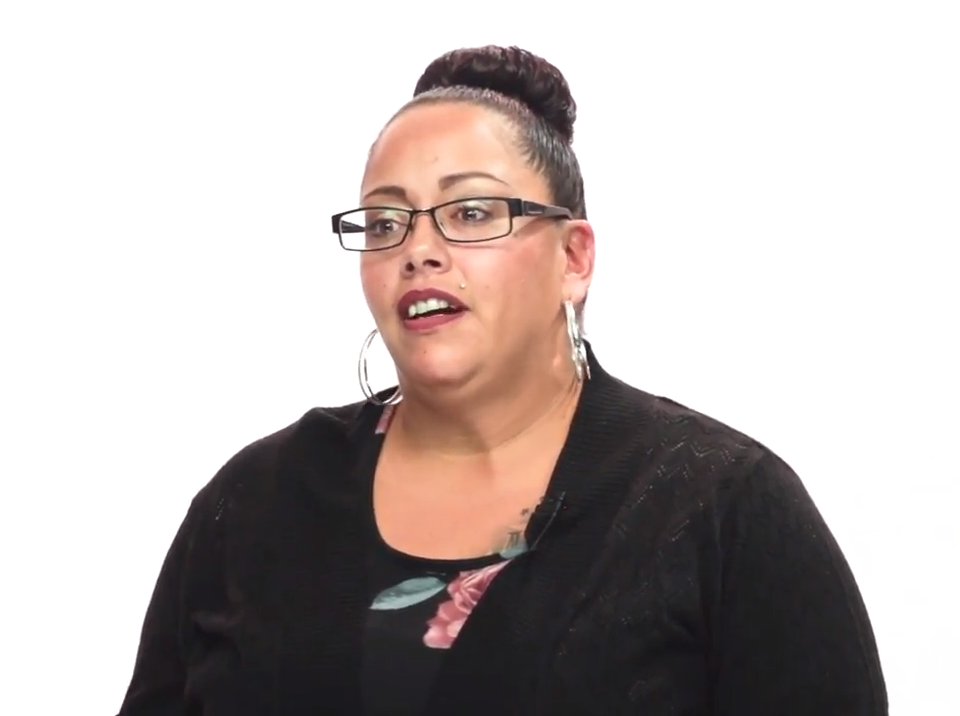On Oct. 19, 2014, Tara Wilder crossed the finish line of her first half marathon. It was a hard race that pushed her to her limits. And the victory was made even sweeter by the fact that the race was on the one-year anniversary of her graduation from the Grand County Felony Drug Court program.
“When I crossed the finish line, I was cheering and crying,” she said. “I didn’t care if I fell flat on my face. The race forced me to pull on strength I didn’t even know I had.”
Wilder said the race was similar to her battle to recover from an opiate addiction, which took a toll on her family.
“It was really empowering,” she said. “It showed me that I can keep going long after I think I can’t. It was one of the most powerful moments in my life, and it had nothing to do with the run.”
Wilder had asked people to make pledges toward her run, but only if she were able to cross the finish line. Through those pledges she raised more than $750 to donate toward other residents of Grand County who were struggling with addiction.
“I gave the money to Four Corners [Community] Behavioral Health,” she said. “I wanted it to be used for families. Movie tickets, gift cards, that kind of stuff.”
After presenting the money, she was approached about the possibility of becoming a recovery coach. And less than a month later, she was in training.
Now, as a peer recovery coach for the Utah Support Advocates for Recovery Awareness (USARA), Wilder uses those experiences to help other Grand County residents who are fighting their own battles with addiction. She is currently working with 21 Grand County residents.
“I’m bringing that lived experience to it,” she said. “I’ve been four years in recovery next month.”
Wilder is part of a statewide peer recovery movement.
“It’s a new concept for Utah,” she said. “I help people remove barriers that can stand in their way to long-term recovery.”
Earlier this year, Wilder helped organize Grand County’s first Recovery Days celebration.
“A lot of the people who struggle with substances here in Moab are third- and fourth-generation [drug abusers],” she said. “When you’re raised in that environment, you don’t always have much of a choice.”
The Recovery Days celebration was an opportunity to help people in recovery connect with their families and others in the community.
“It’s important to be connected with the community,” Wilder said. “We can’t recover alone.”
The celebration wasn’t just for people who have struggled with addiction, Wilder said. It was also for people with mental health issues or eating disorders. It was designed to be a family event.
“The idea is to get people involved so that they’re not so isolated,” she said. “We embrace all paths to recovery.”
Wilder said that her job is similar to being a sponsor in Alcoholics Anonymous. However, the difference is that she doesn’t have a set agenda for her clients. Instead, Wilder serves as a person they can talk to whenever they need.
“I let them make their own decisions,” she said. “They can come as frequently or as little as they want to.”
A significant part of being a peer recovery coach involves working to connect the various resources within Grand County.
“We have such a plethora of resources,” she said. “But you have to look for them.”
Earlier this year, Wilder was able to arrange dental work for six Grand County residents who were desperately in need. “A lot of people with addictions have dental issues,” she said. “And many of them are underinsured or uninsured.”
Wilder found a dentist in Price who volunteered his services to fit all six residents with a full set of dentures.
“It took a lot of coordination,” she said.
The Interact club donated a bus to transport the residents, who had to go up two separate days — once to have any teeth extracted, and the next to be fitted with their dentures.
“It went so smoothly … One of the folks we were able to get dentures for hadn’t had teeth since 2002,” she said. “Another one had teeth that were infected and were really damaging his health.”
Having the dental work done not only improved the health and aesthetics of the six individuals, but Wilder said it made a huge difference in their self-confidence as well.
“Every single one of those people were so grateful for it,” she said. “It was great to see how much healing took place.”
Earlier this month, Wilder was named the Utah Recovery Ambassador.
“It was an awesome feeling to have [the award] framed and presented to me in front of 70-plus people who gave me a standing ovation,” she said.
Wilder said her addiction was hard on her family, but all the struggles they went through have been worth the bond they have now created.
“I’m really honored to be helping other people through that,” she said. “It’s a blessing to watch someone come in and see how their lives blossom. To see kids reunited with their parents … It’s a blessing to be a part of that.”
Wilder said one of the most important parts of her job is giving people hope.
“There is definitely a way out,” she said. “You can recover.”


